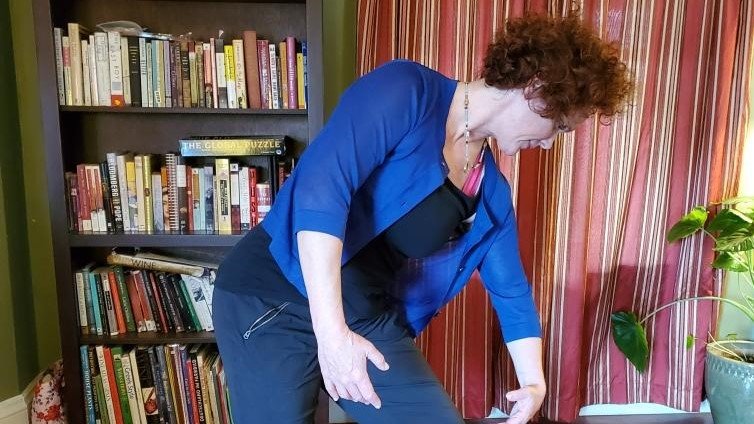By Lexi Rohner
“Your happiness is my happiness,” Eric Yuan, Zoom founder, said.
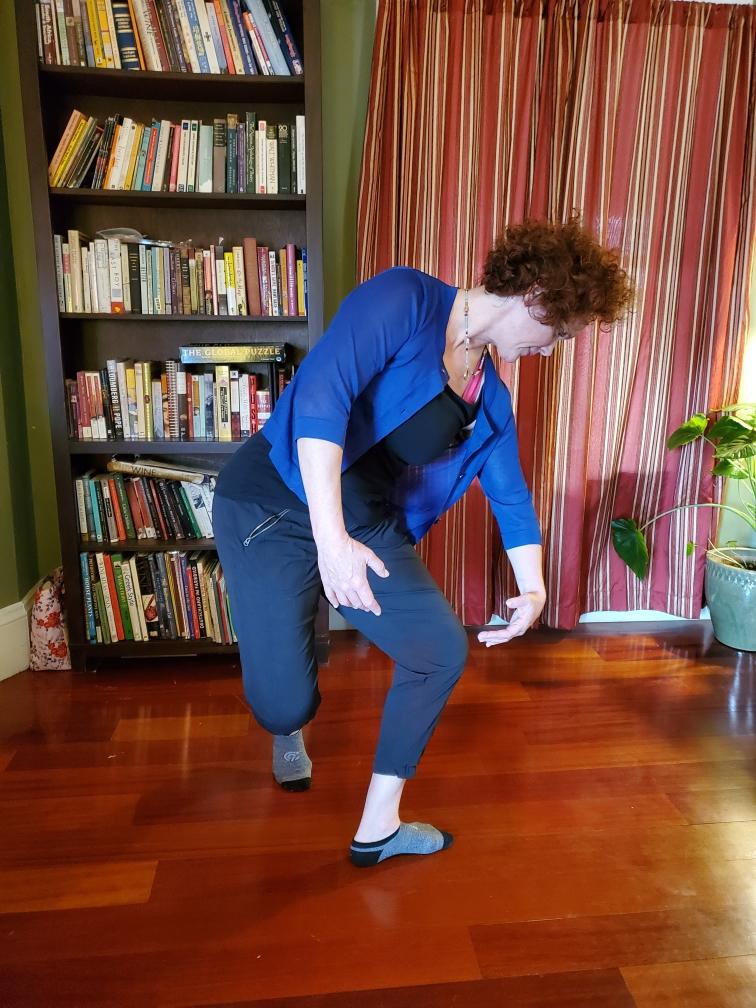
At a time with much uncertainty, a bit of happiness is most welcome. With skaters and coaches globally experiencing ice withdrawal, creativity not previously explored has evolved from difficult circumstances.
Already business-friendly, Zoom has exploded with online classes and socializing opportunities. Coaches and skaters are using Zoom and other technologies to build upon their on-ice successes.
Also, an increased collaboration that is blossoming between coaches from different rinks across the country is certain to bring about lasting benefits.
“Figure skating in the U.S. is a decentralized model, so the coming together of coaches virtually may impact our sport in a way we never imagined,” Heidi DeLio Thibert, PSA senior director of coaching development, said. “Coaching connections are being forged and refined, and athletes are benefitting from the flexibility and openness this current situation has thrust us into.
“We coaches should ask ourselves, ‘What skills, tools and strategies can I learn to use now that will make me a more effective coach when this challenge is passed?’ There will be something in this crisis that causes athletes and coaches to rise up to meet the current challenge, and that trajectory will take them further than they imagined possible.”
Virtual coaching
“I wanted to keep kids motivated and connected to skating,” instructor Kymberly Tompkins said. “My skaters are young. Social connections keep them focused and eager to skate again.”
Tompkins echoes many coaches’ concerns regarding skaters returning to the rink.
“Recreational skaters are 40 percent of my clientele, and their commitment level isn’t the same as competitors,” Tompkins said.
Elin Schran’s Joy Skate Productions adapted her yoga-inspired IceFlow edge classes to SockFlow: a floor version.
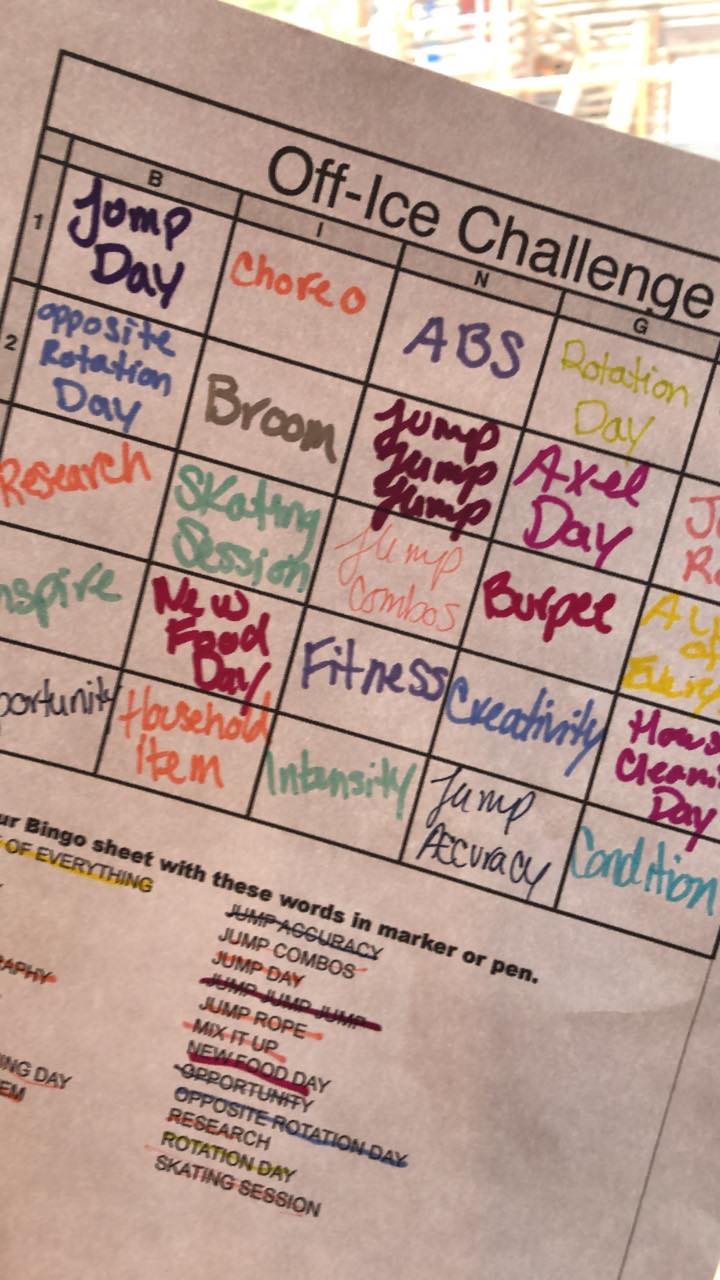
“My focus is people reconnecting with the skating joy,” said Schran, who provides creative skating workshops, camps and classes for all ages, levels and abilities, including adaptive skating. Full class videos are free.
In Park City, Utah, coaches Tiffany McNeill and Stephanie Bass have taken their “Strategic Method” curriculum global, bringing along Olympic ice dancer John Kerr and Team USA’s Sean Rabbitt.
“Significant time away from training can be harmful to athletes’ careers,” Bass said. “Our philosophy is training is training, on or off ice.”
Figure Skating Club of Park City Skating Director Erika Roberts created a schedule and the team quickly mobilized.
“The skating community is hungry for this,” Bass said.
Broadmoor Skating Club coach Tom Zakrajsek respects the unique response to this pandemic and hasn’t made off-ice training mandatory. Using Instagram Live, Zakrajsek garnered 775 participants between two classes, with 1,706 views afterward and 12 countries participating.
“I was pleasantly surprised and honored that Nathan Chen checked it out,” Zakrajsek said.
Gus Lussi, famous for training many Olympic champions to jump on small ice, inspired Zakrajsek to help athletes refine technique and use physics rather than speed and muscle.
“You don't need full ice to train,” Zakrajsek said.
Living and working in two cities, Sarah France offers free online classes through Ice Theatre of New York (ITNY).
“Now is the time to help skaters retain and gain skills,” France said. “It’s exciting to bond with others who love skating. Like me, many people face income loss, and it’s important to offer resources that safely draw people together.”
McNeill and Bass team coach with Olympian Jeremy Barrett and former Team USA ice dancer Chris Obzansky, and are keeping costs low to accommodate everyone.
“Skaters worldwide have joined us and it’s strengthening the skating community,” McNeill said.
Rabbitt produced video content depicting humorous pandemic management, also offering free YouTube classes and private FaceTime free lessons.
“I have a large following — especially with young skaters — and want to lead positively,” Rabbitt said. “This is a great time to take advantage of improving and strengthening their bodies. My students’ parents have been great. Some even join lessons and try jumps or conditioning.”
Other creative activities include the Lake City FSC Lawn Challenge, an off-ice competition in full costume and music, held via Zoom; and adult competitor Mikey Tongko-Burry, who offers online Zumba, encouraging donations to the U.S. Figure Skating Memorial Fund.
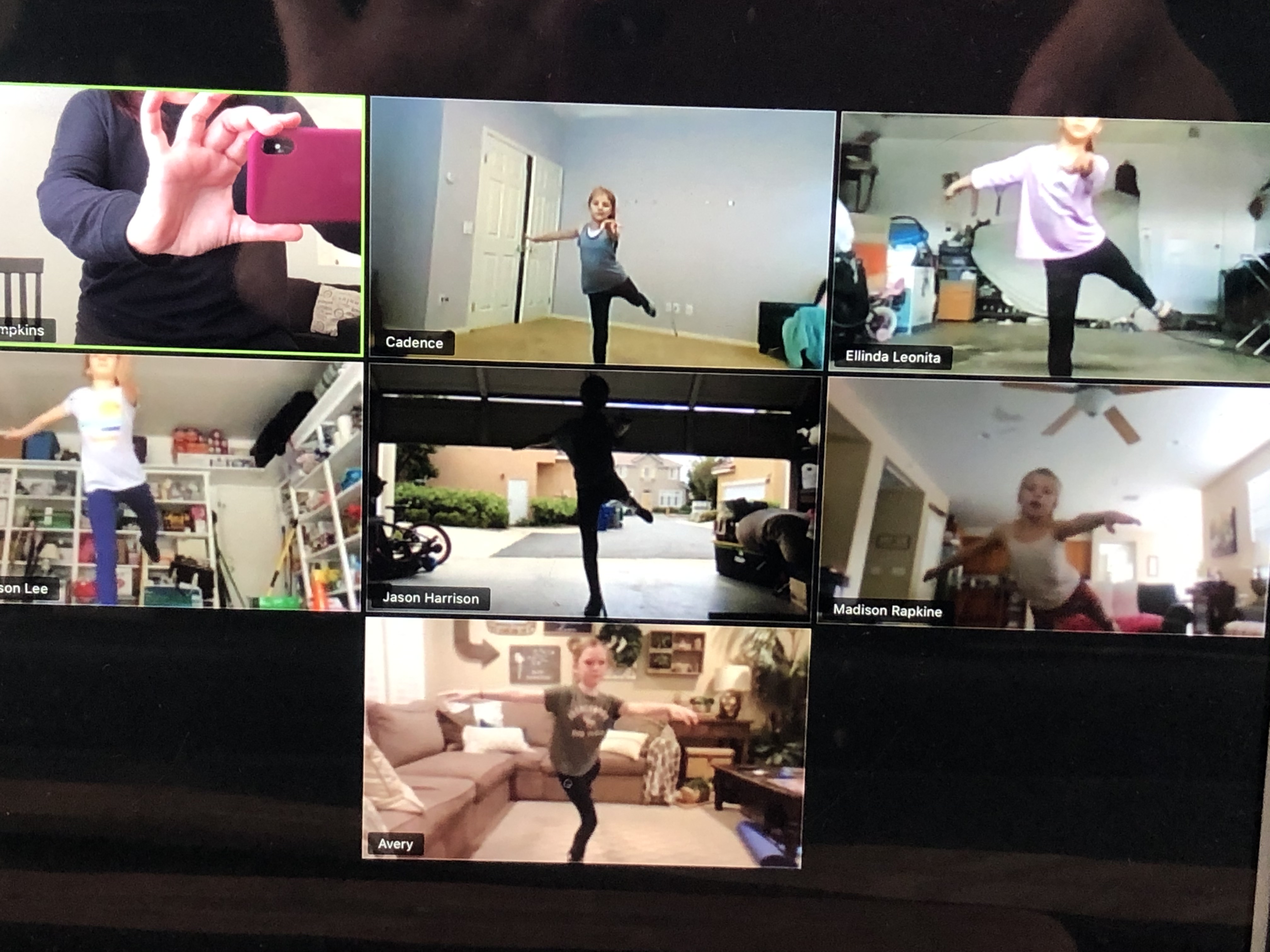
Safety
U.S. Figure Skating Coaches Committee Chair Phillip DiGuglielmo is enthusiastic about virtual coaching.
“There’s more to do and connecting is vital,” he said. “We can all find weaknesses in our teaching. Taking time to strengthen your coaching while your skater improves his or her athleticism is key. Use it [this time] to contemplate skating differently.”
DiGuglielmo cautions avoiding one-on-one coaching.
“We must consider SafeSport and ensure a parent/adult is also in the room to protect all involved,” he said.
Mental focus
“Our coaches have always been good at turning obstacles into teachable moments,” PSA Executive Director Jimmie Santee said. “Despite uncertainty, our coaches are leading by example.”
Adult competitor Gillian Drutchas, a high school English teacher, is happy for the structure.
“Knowing I have to be somewhere is useful,” Drutchas said. “I typically don’t get to see what other coaches offer while juggling work and training.”
“One of the most beautiful things about skating is its capacity to unite people with a common passion,” France said. “Embracing challenges, trying new things are pillars of our sport. Every skater has the chance to help themselves and others through this time.”
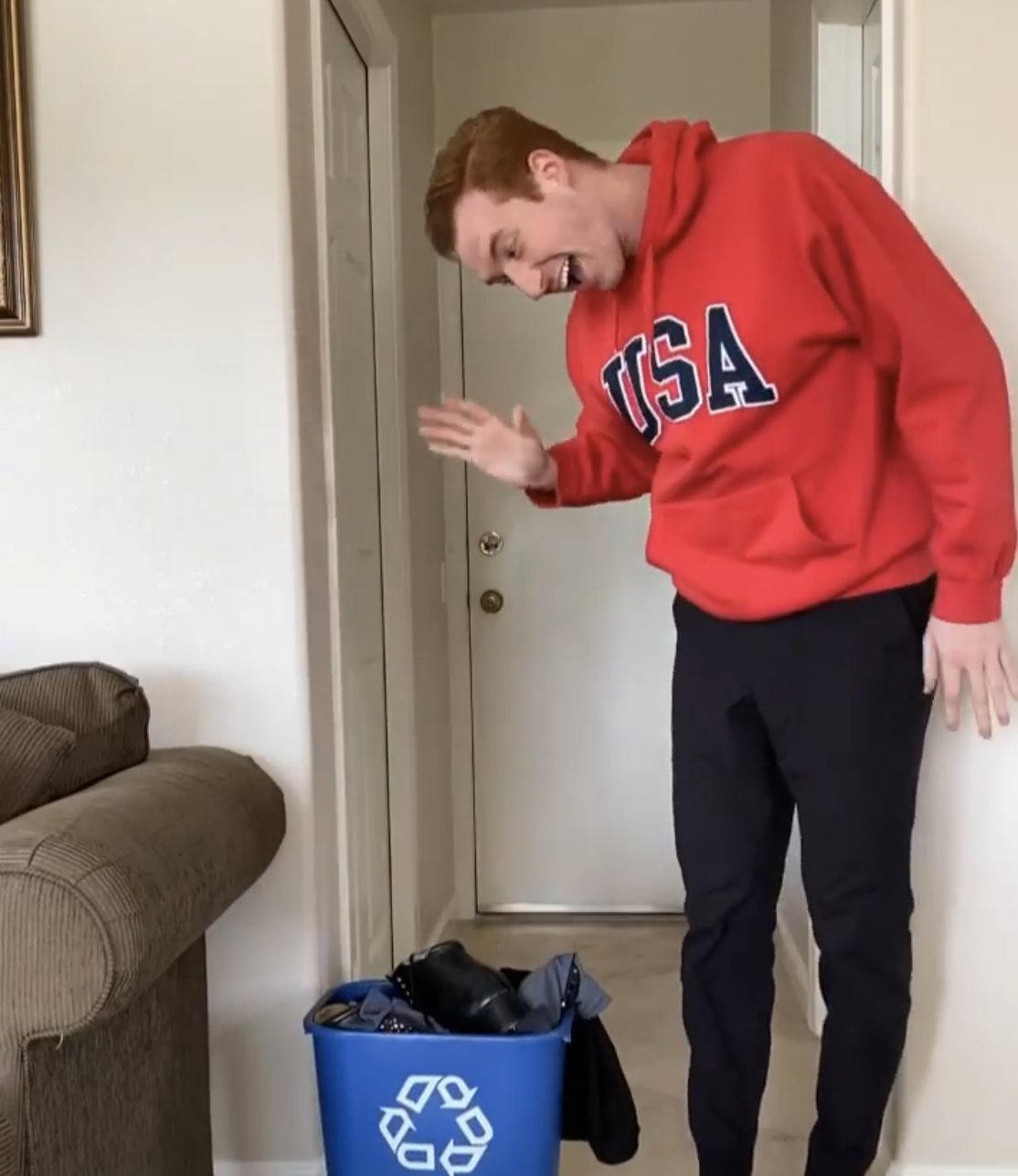
“I do off-ice the same way I would if I was training on ice,” Team USA’s Kate Wang said. “I try to be more focused and do it better than usual, to make up for lost ice time.”
Moving forward
Coaches may have been skeptical about conducting virtual lessons, but now find a greater career reach.
“This unfortunate situation will ultimately make me a better coach,” Kerr said.
Zoom has allowed Tompkins to see how much more she can do, and her clients have expressed gratitude for structure and alleviating feelings of isolation.
“It’s a scary time, for skating and our lives, but I hope it teaches skaters there’s more to life than skating,” Rabbitt said. “You’ll appreciate your skating that much more.”
SafeSport Recommendations for Online Coaching
U.S. Figure Skating understands that during these unprecedented times many coaches and athletes want to continue training as much as possible, while moving to an online coaching model.
U.S. Figure Skating Electronic Communication and Social Media Policy:
Live video meetings (such as Zoom, Facebook or Instagram live, YouTube live, and others) must adhere to U.S. Figure Skating’s electronic communication policy located in the SafeSport Program Handbook. This policy states that all electronic communication between a Minor Athlete and an Adult Participant shall meet two-deep leadership requirements by including at least one other Adult.
It’s recommended that the second adult participating in the meeting is the Minor Athlete's parent or permanent legal guardian, but two-deep leadership may also be met by including an Adult Athlete, an adult coach or any other person who is over the age of 18.
Prior to scheduling video meetings between Adult Participants and Minor Athletes, it’s recommended that the Adult send an introductory email to the Minor Athlete’s parent or permanent legal guardian outlining what the purpose of the meeting is, the two-deep leadership requirement, and how often they can expect their Minor Athlete to participate.
Below are helpful tips to remain compliant with U.S. Figure Skating SafeSport policies.
Recommendations to Remain Open and Interruptible:
- All communication with Minor Athletes must remain professional in nature.
- Platforms selected for online learning should be approved by your club, and accessible to all parties, including the parents of Minor Athletes.
- Workout session schedules should be presented to all team members, parents and other coaches and strictly followed.
- Be mindful that some poses, exercises and positions can appear exaggerated when presented online. Training sessions should consider methods for preventing positions that may be compromising.
- Involve as many athletes as possible during each session.
- Online sessions must occur in common areas, such as a living room or back yard – never in a bedroom, bathroom or other private space.
- Attire should be the same as if the session were occurring at the skating rink or club.
- Parents and guardians may ask you or your club to stop any communication – any such request must be honored immediately without repercussion.
Additionally, electronic communication between one Minor Athlete and one Adult Covered Individual is against SafeSport policy. The social media policy regarding interactions with Minor Athletes remains in effect.
If you have any questions, please reach out to the U.S. Figure Skating SafeSport Department at safesport@usfigureskating.org.
